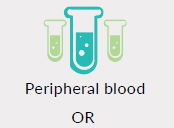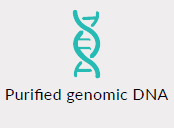
Amit & Akhila (name changed), a non-consanguineous couple with clinical indication of primary infertility consulted a leading gynaecologist in India. After investigation she found both with abnormal HPLC profiles for haemoglobin and suspected of having Beta Thalassemia trait and suggested the couple to undergo genetic testing at MedGenome Labs, Bangalore.
Beta Thalassemia is an inherited blood disorder that reduces the production of haemoglobin. Mutations in the HBB gene cause beta thalassemia. The HBB gene is responsible for the synthesis of a protein called beta-globin which is a component (subunit) of haemoglobin. Mutations in this gene can result in decreased (β+) or no (β0) β-globin production leading to autosomal recessive disorders like β-thalassemia and sickle cell anaemia. Approximately 20 mutations, including deletions, insertions, base substitutions and alternate splice variants, are known to be responsible for abnormal β-globin production in South-East Asians. Of these, del619bp, IVS1-5 G>C; nt 147, IVS1-1 G>T; nt 143, codon 8/9 (+G) and codon 41/42(-TTCT) are more prevalent in the Indian population.
At MedGenome Labs the couple were tested for mutations in the HBB gene. It was found that only wife was positive for 1 mutation, c.92+5G>G/C. The Husband who was negative for any mutations was tested using MLPA to detect Deletions/Duplication in the HBB Gene. MLPA Testing detected indicated the presence of the 619 bp-deletion, beta thalassemia mutation in heterozygous state. This is one of the most common beta thalassemia mutations, comprising >50% of beta thalassemia in Asian Indian subpopulations.
The recurrence risk in this case is 25% chance of having a child with beta thalassemia major, 50% chance of the child being a carrier like the parents and 25% chance of the child being normal (with respect to inheriting either mutations/deletion from the parents).
Comprehensive screening of the complete HBB Gene by two different methods helped identify the genetic defect in both parents. Hotspot testing only identifies specific mutations but can miss rarer or novel mutations, but MedGenome’s comprehensive testing covers the entire HBB Gene and can identify any such mutation or deletion/duplication. Parents who have symptoms, family history of the disorder, or are known carriers of the disease, can benefit from prenatal testing for mutations in this gene.
| Medgenome offers | Test Sample requirements | Required forms | TAT |
| Beta thalassemia (HBB) gene analysis |  | Test requisition form along with relevant clinical information including pedigree. consanguinity. age of onset, clinical presentation and symptoms | 14 Working Days |
| Beta thalassemia (HBB) deletion/duplication analysis |  | 14 Working Days |

 Enquire
Now
Enquire
Now